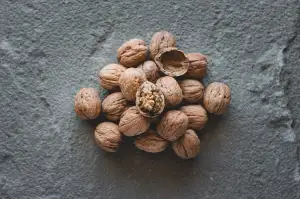Protein Power: Unveiling the Optimal Amount for Muscle Building

- Importance of Protein for Muscle Building
- Recommended Daily Protein Intake for Muscle Growth
- Factors Affecting Protein Requirements for Muscle Building
- High-Quality Protein Sources for Muscle Development
- Timing and Distribution of Protein Intake for Optimal Muscle Growth
- Potential Risks of Excessive Protein Consumption for Muscle Building
Importance of Protein for Muscle Building
Protein plays a crucial role in muscle building and development. It is made up of amino acids, which are the building blocks of muscles. When we engage in resistance training or any form of exercise that puts stress on our muscles, small tears occur in the muscle fibers. Protein is essential for repairing and rebuilding these damaged muscle tissues, leading to muscle growth and increased strength.
In addition to repair and growth, protein also aids in the synthesis of new proteins within the body. This process, known as protein synthesis, is vital for maintaining and increasing muscle mass. Without an adequate supply of protein, our bodies cannot effectively repair, build, or maintain muscle tissue.
Furthermore, protein has a higher thermic effect compared to carbohydrates and fats. This means that it requires more energy to digest and absorb protein than other macronutrients. As a result, consuming protein-rich foods can slightly increase our metabolic rate, aiding in weight management and fat loss.
In conclusion, protein is essential for muscle building as it provides the necessary amino acids for repairing and rebuilding damaged muscle tissues. It also plays a crucial role in protein synthesis and can help with weight management. Including an adequate amount of high-quality protein in our diet is vital for optimal muscle development.
Recommended Daily Protein Intake for Muscle Growth
When it comes to building muscle, protein is an essential nutrient that plays a crucial role. It provides the building blocks needed for muscle repair and growth. But how much protein should you consume daily to maximize your muscle-building potential?
The recommended daily protein intake for muscle growth varies depending on several factors, including age, sex, activity level, and overall goals. Generally, it is suggested that individuals aiming to build muscle consume between 0.8 to 1 gram of protein per pound of body weight.
For example, if you weigh 150 pounds, your daily protein intake should range from 120 to 150 grams. However, athletes or those engaged in intense physical activity may require a higher protein intake to support their training demands.
It's important to note that this recommendation is a general guideline and individual needs may vary. Consulting with a registered dietitian or nutritionist can help determine the optimal protein intake based on your specific circumstances.
Remember that meeting your daily protein requirements through whole foods is ideal. However, if you struggle to reach your target solely through food sources, incorporating protein supplements such as whey or plant-based powders can be beneficial.
In the quest for muscle development, finding the right balance of protein intake is key. By ensuring you meet your recommended daily protein intake, you provide your muscles with the necessary fuel for growth and repair.
Factors Affecting Protein Requirements for Muscle Building
The amount of protein needed for muscle building varies depending on several factors. Firstly, the individual's body weight and composition play a crucial role. Those with higher muscle mass require more protein to support muscle growth and repair.
Secondly, the intensity and frequency of exercise also impact protein requirements. Individuals engaging in intense resistance training or endurance activities may need more protein to aid in muscle recovery and adaptation.
Furthermore, age is a significant factor. Older adults generally have decreased muscle protein synthesis rates, so they may require higher protein intake to counteract age-related muscle loss.
Additionally, dietary habits can affect protein needs. Vegetarians or vegans may need to carefully plan their diets to ensure adequate protein intake from plant-based sources.
Lastly, overall energy balance must be considered. Individuals in a calorie deficit for weight loss may require higher protein intake to preserve lean muscle mass.
Considering these factors is essential when determining the optimal amount of protein needed for muscle building. It is recommended to consult with a healthcare professional or registered dietitian to develop an individualized plan tailored to specific needs and goals.
High-Quality Protein Sources for Muscle Development
High-quality protein sources are essential for muscle development. These sources provide all the necessary amino acids that our bodies need to build and repair muscles. Some excellent options include lean meats such as chicken, turkey, and beef, as well as fish like salmon and tuna. Plant-based sources like tofu, lentils, quinoa, and beans are also rich in protein. Dairy products such as milk, yogurt, and cottage cheese are great choices too. Incorporating these high-quality protein sources into your diet will help support optimal muscle growth and development.
Timing and Distribution of Protein Intake for Optimal Muscle Growth
In addition to the amount of protein consumed, the timing and distribution of protein intake also play a crucial role in maximizing muscle growth. Research suggests that spreading protein intake evenly throughout the day is more effective than consuming large amounts in one sitting.
To optimize muscle protein synthesis, it is recommended to consume 20-30 grams of high-quality protein every 3-4 hours. This approach ensures a steady supply of amino acids, which are the building blocks of muscle tissue.
Moreover, consuming protein shortly before or after exercise can further enhance muscle growth. This is because exercise increases blood flow to muscles, allowing for better nutrient delivery and absorption. Aim to have a protein-rich meal or snack within an hour of your workout session.
Furthermore, including a source of protein in each meal can help maintain an anabolic state throughout the day. This means that your body will continuously have access to the necessary nutrients for muscle repair and growth.
Remember that while timing and distribution are important, total daily protein intake remains the primary factor for muscle building. Therefore, focus on meeting your daily protein requirements while also paying attention to when and how you distribute your intake throughout the day.
By strategically timing and distributing your protein intake, you can maximize muscle growth potential and achieve optimal results from your training efforts.
Potential Risks of Excessive Protein Consumption for Muscle Building
While protein is essential for muscle building, consuming excessive amounts can have potential risks. One risk is the strain it puts on the kidneys. When we consume excess protein, our kidneys have to work harder to eliminate the byproducts of protein metabolism. This can lead to kidney damage and even kidney stones in some cases.
Another risk of excessive protein consumption is an increased risk of dehydration. Protein requires more water for digestion and metabolism compared to other macronutrients. If we don't drink enough water to compensate for this increased demand, it can lead to dehydration.
Furthermore, excessive protein intake may also result in nutrient imbalances. When we focus too much on protein-rich foods, we might neglect other important nutrients like carbohydrates, fats, vitamins, and minerals that are necessary for overall health and muscle development.
Lastly, consuming excessive amounts of protein often means consuming more calories than needed. This can lead to weight gain and an increase in body fat percentage if not balanced with regular exercise.
It's important to note that these risks are associated with long-term excessive protein consumption. It's crucial to find the right balance of protein intake that aligns with your individual needs and goals for muscle development while considering overall health and well-being.
In conclusion, finding the right balance of protein is crucial for optimal muscle development. While protein is essential for muscle building, it is important to remember that more is not always better. The recommended daily protein intake for muscle growth varies depending on factors such as age, sex, activity level, and goals.
Consuming high-quality protein sources such as lean meats, poultry, fish, eggs, dairy products, and plant-based options like legumes and tofu can provide the necessary amino acids for muscle development. It is also important to consider the timing and distribution of protein intake throughout the day.
While excessive protein consumption may seem beneficial for muscle building, it can lead to potential risks such as increased strain on the kidneys and liver. Therefore, it is crucial to consult with a healthcare professional or registered dietitian to determine the optimal amount of protein needed for your individual needs.
By finding the right balance of protein intake along with a well-rounded diet and regular exercise routine, you can maximize your muscle-building potential and achieve your fitness goals effectively. Remember that nutrition plays a vital role in muscle development, so make informed choices to fuel your body properly.
Published: 05. 01. 2024
Category: Health



